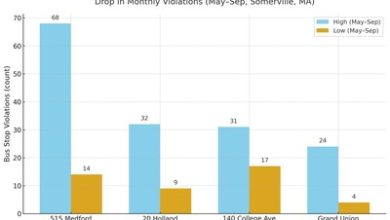Results presented in oral session demonstrated that treatment with ataciguat reduced aortic valve calcium and improved cardiac function and output compared to placebo
SOUTH SAN FRANCISCO, Calif. & PRINCETON, N.J.–(BUSINESS WIRE)–Kardigan, a heart health company modernizing cardiovascular drug development, announced positive Phase 2 data on ataciguat in patients with moderate calcific aortic valve stenosis, presented today in an oral session at the American Heart Association Scientific Sessions 2025. Results demonstrated that treatment with ataciguat, an investigational oral soluble guanylate cyclase activator, slowed the progression of aortic valve calcium (AVC), leading to improvements in measures of valvular compliance, cardiac output (CO), and cardiac function when compared to placebo.
“The primary driver of calcific aortic valve stenosis is the accrual of aortic valve calcium, which causes chronic left ventricular pressure overload, leading to maladaptive ventricular remodeling and dysfunction. Without disruption, this will result in progression to heart failure and eventually procedural intervention in most patients,” said Brian Lindman, M.D., MSCI, medical director, Structural Heart and Valve Center, Vanderbilt University Medical Center. “The data presented on ataciguat at AHA reinforce the potential to deliver the first medical treatment for moderate calcific aortic valve stenosis that targets the root cause of the disease, moving us beyond passive monitoring toward earlier, disease-modifying intervention.”
In the clinical trial, treatment with ataciguat resulted in improvements in left ventricle ejection fraction (LVEF) and CO, and slowed the progression of worsening of diastolic function, at six months compared to placebo. Participants in the clinical trial with the least increase in AVC had the largest increase in CO. In addition, treatment with ataciguat slowed the progression of aortic valve resistance, an alternative measure to assessing valvular compliance, compared to placebo at six months. Changes in aortic valve resistance also correlated with changes in left ventricular remodeling, specifically left ventricular mass index (LVMI). As such, treatment with ataciguat may help preserve aortic valve compliance by reducing aortic valve resistance and have a direct effect on left ventricular remodeling. These hypotheses will be further evaluated in the KATALYST-AV Phase 3 clinical trial.
“For the millions of patients diagnosed with moderate calcific aortic valve stenosis each year, there are no treatment options except to watch and wait for their disease to progress to a point where surgical intervention is necessary to replace the valve. The Phase 2 data on ataciguat presented at AHA reinforce our hypothesis that slowing the buildup of aortic valve calcium is associated with improvements in cardiac output and function,” said Jay Edelberg, M.D., Ph.D., co-founder and chief medical officer, Kardigan. “We look forward to further data on ataciguat from the ongoing KATALYST-AV clinical trial to assess the myocardial and valvular effects of ataciguat to preserve functional capacity, and to the possibility of bringing a new treatment to patients in this critical disease area.”
The Phase 2, randomized, double-blind clinical trial included 23 patients randomized to either 200 mg ataciguat (n=12) or placebo (n=11) once daily for a 12-month period. The primary Phase 2 clinical trial results were published in Circulation in February 2025.
The KATALYST-AV Phase 3 clinical trial has been initiated to assess ataciguat versus placebo in the preservation of functional capacity through myocardial and valvular effects, and in slowing the progression to valve replacement.
Ataciguat is one of three late-stage investigational candidates that Kardigan is developing, in parallel, as part of its portfolio of targeted medicines designed to modify the underlying cause of various cardiovascular diseases. The company is also developing tonlamarsen1, an angiotensinogen-targeted bridging therapy to interrupt the dangerous cycle of acute severe hypertension, and danicamtiv2, a potential first-in-class direct cardiac myosin activator targeting genetic dilated cardiomyopathy driven by sarcomeric variants, to restore cardiac function through direct activation of both atrial and ventricular function.
About Calcific Aortic Valve Stenosis
Calcific aortic valve stenosis (CAVS) is a progressive disease characterized by calcification of the aortic valve and reduced blood flow from the heart. Calcium buildup on the aortic valve is the leading cause of CAVS in adults in the U.S. and EU, and is known to lead to heart failure and death without intervention. In the U.S. alone, more than 3.4 million people are living with CAVS. With no approved treatments for this progressive disease, patients with CAVS are left to “watchful waiting” as the current standard of care until the condition advances to the severe stage, which requires a procedural intervention.
About Ataciguat
Ataciguat is a once-daily, oral soluble guanylate cyclase activator being developed as a potential first-in-class treatment for CAVS and an alternative to the current “watchful waiting” approach and progression to valve replacement that is today’s standard of care. Ataciguat has the potential to revolutionize the management of CAVS as the first pharmacological therapy by targeting calcium as the underlying driver of disease progression. Kardigan acquired rights to ataciguat, an investigational drug developed by, and in-licensed from, Sanofi and Mayo Clinic.
About Kardigan
Kardigan is a patient-driven heart health company that is modernizing cardiovascular drug development to deliver medicines that move patients beyond symptom management to functional cures. By matching critical disease drivers with treatment responders identified in clinical trials, Kardigan is developing a portfolio of medicines that modify the underlying cardiovascular disease pathophysiology to get patients closer to the cures they deserve. The company is based in South San Francisco, California and Princeton, New Jersey. To learn more, visit Kardigan.bio.
|
____________________ |
1 Kardigan in-licensed exclusive worldwide development and commercialization rights to tonlamarsen, an investigational drug discovered and developed by Ionis.
2 Kardigan in-licensed exclusive worldwide development and commercialization rights to danicamtiv, an investigational drug discovered at MyoKardia and further developed by Bristol Myers Squibb.
Contacts
Media – [email protected]
Investors – [email protected]



